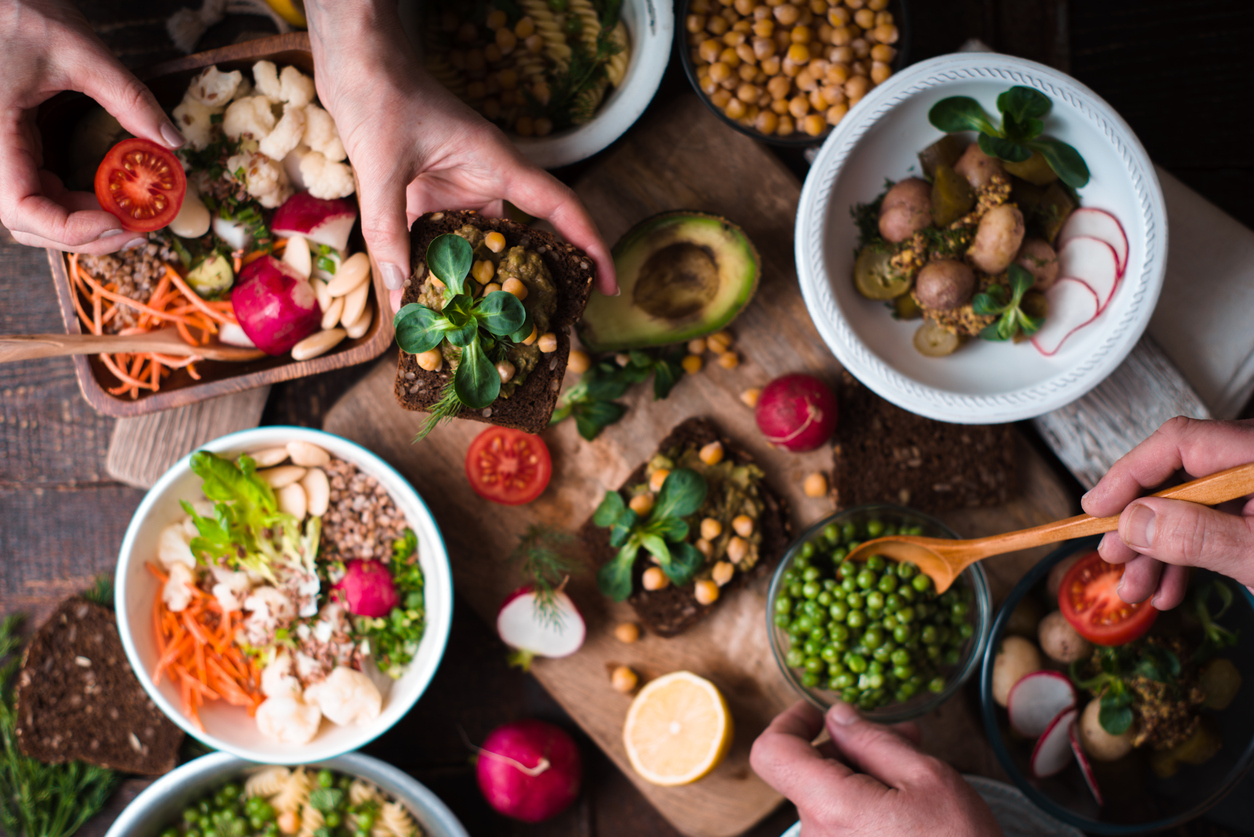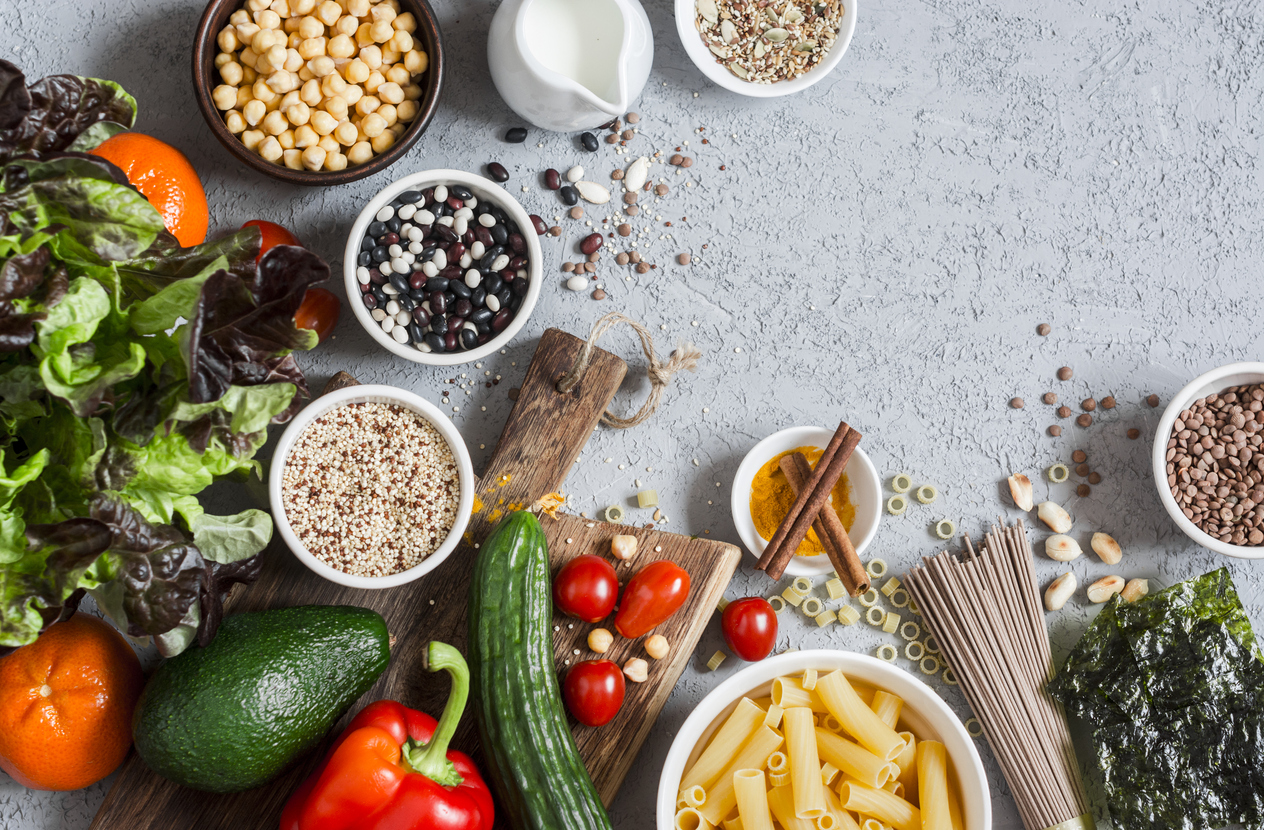Vegetarianism is not a new fad or passing trend, many people have subscribed to this diet for years. However, as sustainability becomes more of a focus, more and more people are signing up for meatless meals.

Here’s how to be a healthy vegetarian
If you are cutting meat out of your diet, you need to make sure you’re living your best vegetarian life. This means getting lots of nutrients to help your body function properly. Here are the top five vital nutrients that your body needs, to make sure your energy and metabolism levels are always at their best…
- Iron is important for oxygen transportation around the body. Food sources of iron include tempeh, eggs, nuts and seeds (almonds, sunflower seeds, cashews), iron-fortified bread and cereals and dried fruit.
- Protein is important for growth and repair of cells, hormones and muscle function. Food sources include legumes (beans, lentils, chickpeas), tofu & tempeh, eggs, nuts and seeds, dairy (Cheese, milk, yoghurt) and whole grains (brown rice, quinoa)
- Calcium is important for building and maintaining strong bones and teeth, nerve and muscle function. Food sources include dairy (Cheese, milk, yoghurt), calcium-fortified foods (e.g. plant-based milk), nuts & seeds (almonds, brazil nuts, sesame), tahini, dark leafy greens (kale, Asian greens, broccoli) and tofu.
- Vitamin B12 is important for red blood cell production for a healthy brain and nerve function. Sources of B12 include dairy & eggs, B12 fortified foods (e.g some soy beverages & mock meats), B12 supplement (consult a healthcare professional first!)
- Zinc is important for growth, development, reproduction, appetite, a strong immune system & wound healing. Vegetarian zinc sources include, brown rice, quinoa, tofu & tempeh, nuts (almonds, cashews, brazil nuts, pecans, pine), seeds (pumpkin), wholemeal bread, zinc-fortified cereals, rolled oats

Click here for some nutrient-packed vegetarian recipes.




